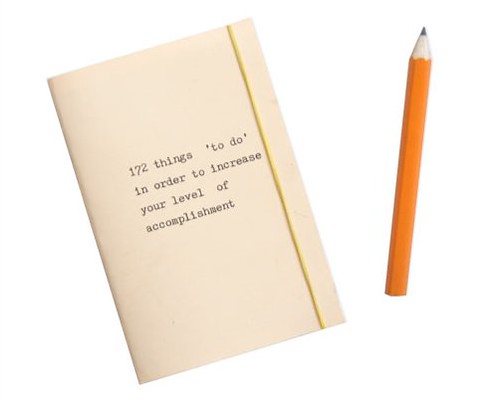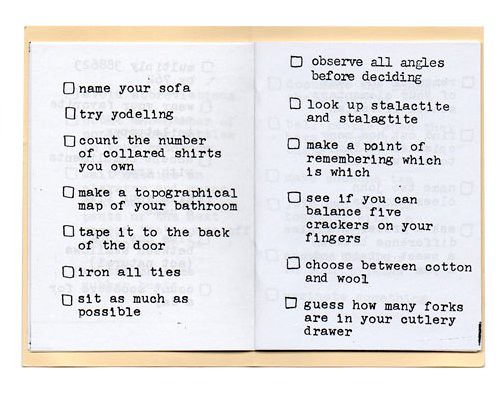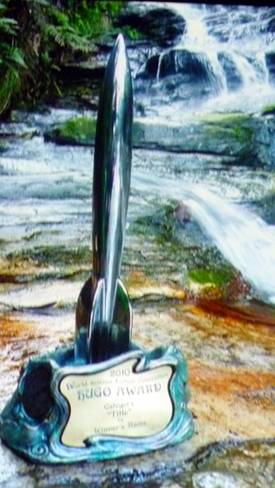Posts Tagged ‘books’
Read the Revelations in Full: Book of Jobs Now Available [Steve Jobs]
Read the Revelations in Full: Book of Jobs Now Available [Steve Jobs]
FLOWCHART: Navigating NPR's Top 100 Science Fiction and Fantasy Books
Over the summer, NPR solicited the input of its listeners to rank the top science fiction and fantasy books of all time. Over 60,000 people voted for the top picks which were then compiled into a list by their panel of experts. The result? This list of 100 books with a wide range of styles, little context, and absolutely no pithy commentary to help readers actually choose something to read from it.
We at SF Signal have, once again, come to the rescue. This flowchart is designed to help you follow your tastes, provide context, and fulfill (indeed exceed!) any need for pithy commentary you might harbor.
Designer's Note: This is the mightiest flowchart I have ever encountered let alone tried to develop. There are (obviously) 100 end points and over 325 decision points. A chart of this size presents a number of readability challenges. For people with lower resolution monitors, netbooks, or tablets, this 3800 x 2300 image is going to a scroll-fest. But it's totally worth it.
Update: Those looking for a printable version of this flowchart will find happiness here. This is a 300 DPI bitmap version that should print nicely on 11x17 tabloid paper. Warning! The file is 26MB compressed and a whopping 173MB when unzipped.
Update 2: As Neil Gaiman so astutely pointed out, the novel Stardust, unlike the movie, contains no pirates. Turns out he's an authority on the subject. This egregious error has been corrected and we'd love to appeal @neilhimself's ruling of this being not quite the greatest flowchart in human history.
This is a blog post from SF Signal. Subscribe via RSS, Twitter or Facebook.
A book of checklists is my fave


Today I’m fond of this mini book of 172 things ‘to do’ in order to increase your level of accomplishment by Brandy Fedoruk. Things I could check off if they were listed in the book:
- even out a row of brownies
- wikipedia everything
- wear the same pair of pants for a week straight
- dust the bookshelf with your sleeve
- make a lame attempt at doing a pull-up
via Tcktyboo
Arthur C. Clarke believed America’s smartest people were wasting their time on banking instead of the space program [Books]
The 15 Best Speculative Fiction Books of 2010 [Best Of 2010]
How Often Did Authors Use the Word “Internet†Over 500 Years? Ask Google
Here’s a nifty little tool to get you through the last grueling hours of Friday afternoon: Fresh from Google Labs comes “Books Ngram Viewer,†a visualization tool that shows you the annual frequency of certain words used in books published between 1500 and 2008.
Predictably, “Internet†was not so popular in, well, the pre-Internet age (check out the above graph to see for yourself), but this viewer is certainly handy for tracking the popularity of terms throughout the decades.
(NB: The word “Internet†seems to pop up a little early because: “Most of those are OCR errors; we do a good job at filtering out books with low OCR quality scores, but some errors do slip through,†according to the “About†section.)
The tool was assembled from data pulled from close to 5.2 million digitized books — which amounts to 500 billion words in English, French, Spanish, German, Chinese and Russian — and takes advantage of Google’s free, online digital library (which has grappled with its share of legal issues in its time). Users can also download the data and build their own search tools.
Of course, the Ngram Viewer was not intended as a mere diversion — according to The New York Times, Erez Lieberman Aiden, a junior fellow at the Society of Fellows at Harvard, and Jean-Baptiste Michel, a postdoctoral fellow at Harvard, created this tool as part of a project on language and culture (their paper on the subject is available in a journal called Science).
We imagine that the Books Ngram Viewer could be used not only to track the evolution of language and trends over time, but also to compare and contrast the frequency of certain terms online and in print (perhaps when used in tandem with tools akin to Google Trends).
Test out some words and let us know what you think.
Image courtesy of Flickr, dotbenjamin
Reviews: Flickr, Google, Google Labs, Internet, society, test
More About: books, Books-Ngram-Viewer, Google
For more Tech coverage:
- Follow Mashable Tech on Twitter
- Become a Fan on Facebook
- Subscribe to the Tech channel
- Download our free apps for Android, iPhone and iPad
Hugo Awards 2010: some of the best results in recent memory
 Last night, the Hugo Awards, one of science fiction's most prestigious prizes, were presented in Melbourne at Aussiecon 4. The Hugo ceremony is one of my favorite parts of any WorldCon, and last night's event, emceed by Garth Nix, was a particularly outstanding edition. The ballot was extremely strong, with works that I really enjoyed competing in several categories. The voter and nominator turnout were both much higher than usual, and the program moved at a very, very good clip. This year's award, designed by Nick Stathopolous, was gorgeous, incorporating aboriginal motifs and an organic, Belle Époque look inspired by the Paris Metro signs. Kudos to the administrators on a smooth, well-run ceremony!
Last night, the Hugo Awards, one of science fiction's most prestigious prizes, were presented in Melbourne at Aussiecon 4. The Hugo ceremony is one of my favorite parts of any WorldCon, and last night's event, emceed by Garth Nix, was a particularly outstanding edition. The ballot was extremely strong, with works that I really enjoyed competing in several categories. The voter and nominator turnout were both much higher than usual, and the program moved at a very, very good clip. This year's award, designed by Nick Stathopolous, was gorgeous, incorporating aboriginal motifs and an organic, Belle Époque look inspired by the Paris Metro signs. Kudos to the administrators on a smooth, well-run ceremony!
The fiction prizes were especially sweet this year. Best novel was an almost-unheard-of tie between China Mieville for his brilliant, mind-bending The City and the City and Paolo Bacigalupe for his stellar debut novel The Windup Girl. Best novella went to my collaborator Charlie Stross for Palimpsest, from his wonderful, mind-bending solo short story collection Wireless. Best novelette went to Peter Watts for The Island, from The New Space Opera 2. Boing Boing readers will remember Peter as the SF writer who was beaten and gassed near the US/Canada border when he got out of his car to ask why US customs officers were searching his car; he spent tens of thousands of dollars fighting the charge and the potential two-year sentence; was found guilty but received a suspended sentence. SF fans raised money to bring Peter to Australia, and his acceptance speech in which he called this the "best and worst year of his life," was brilliant. The best short story, which I presented, went to Will McIntosh for "Bridecicle," a lovely story.
Net-based media was a big winner this year: the podcast Starship Sofa (often presented here) won for Best Fanzine. And of course, there was Fred Pohl's Hugo for Best Fan Writer for his excellent blog The Way the Future Blogs.
Other categories whose winners made me especially glad include the Best Editor prize for my editor at Tor, Patrick Nielsen Hayden (this was his second prize in the very new category, and he has taken his name out of the running for next year). The graphic novel category went to Phil and Kaja Foglio's steampunk comic Girl Genius. The Campbell Award for best new writer to Seanan McGuire, whose heartfelt acceptance speech made me burst into tears.
Tor.com has the full list of nominees and winners here.
Reading E-Books Takes Longer Than Reading Paper Books
Read more of this story at Slashdot.
Reading E-Books Takes Longer Than Reading Paper Books
Read more of this story at Slashdot.









